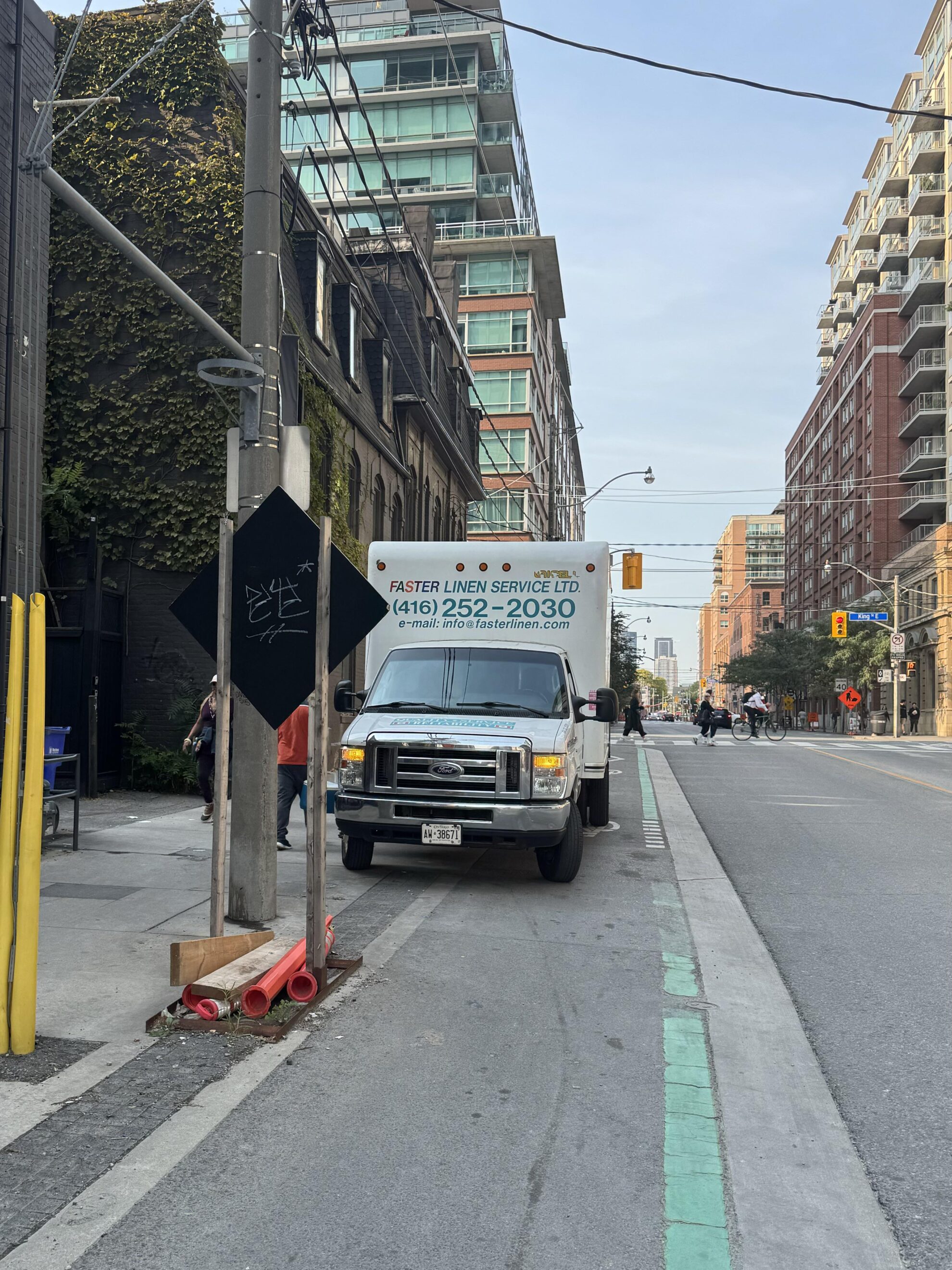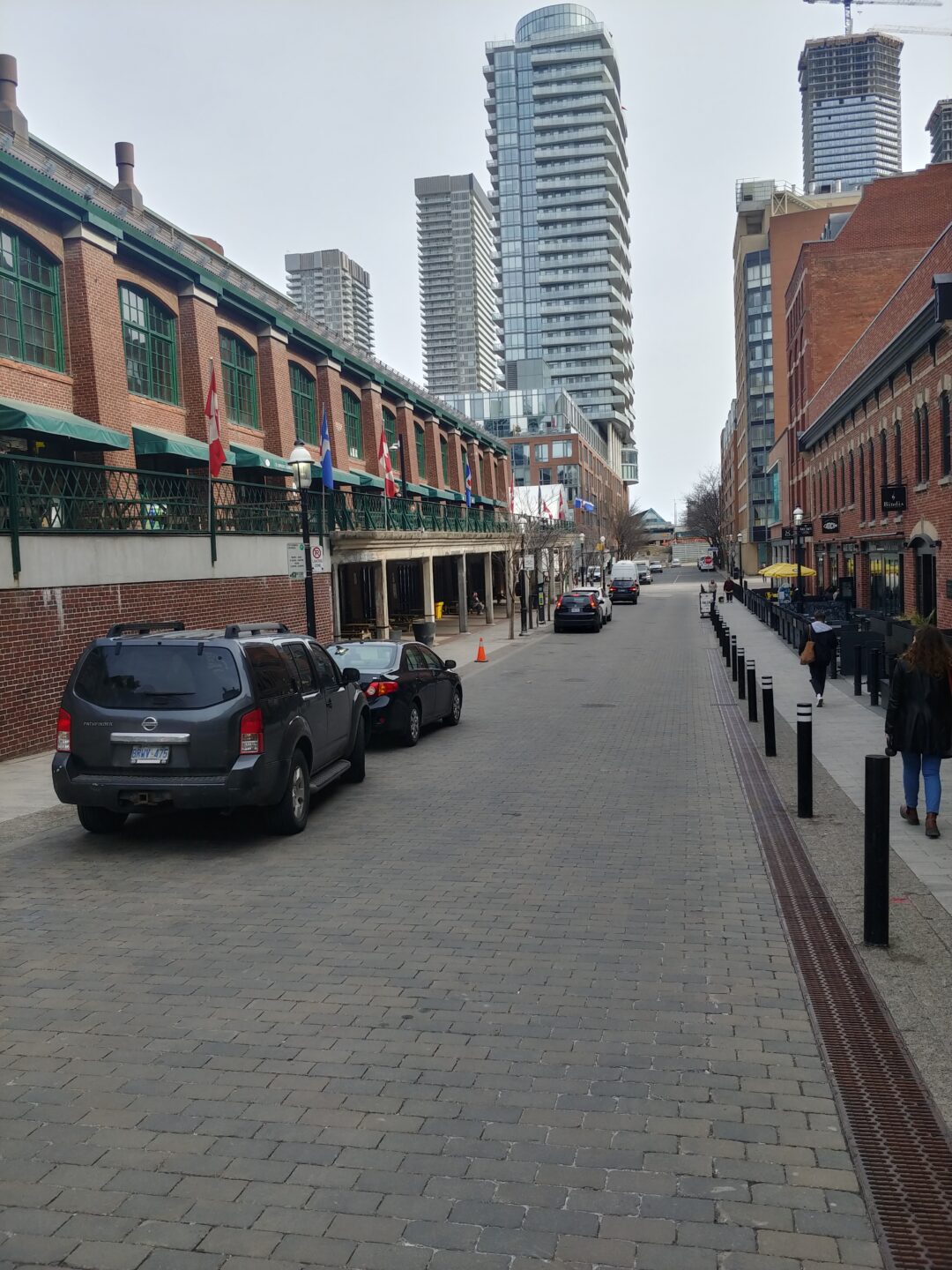Dennis Hanagan –
City Council sided with cyclists at its October meeting, telling Toronto city managers to find better ways to keep vehicles and other objects from blocking bicycle lanes.
When a lane is blocked cyclists move into vehicular traffic, which can lead to accidents. In July, a dump truck struck and killed a cyclist trying to avoid a construction bin illegally placed in a Bloor Street bike lane.
The city has directed division managers to work with Toronto Police and other “appropriate” agencies to minimize the blocking or obstruction of bicycle lanes whether by city-owned vehicles, those contracted by the city or by other unauthorized objects such as garbage bins.
A report on the matter is to be made at some future Infrastructure and Environment committee as part of the next staff report on congestion management.
At the committee’s September meeting, Ward 11 (University-Rosedale) Councillor Dianne Saxe, a cyclist, advocated for clear pathways on bike lanes. “Bike lanes are important, but they’re worthless if we don’t make them safe,” she said.
“Every single day there are multiple vehicles illegally blocking the bike lanes…and we’re not seeing an effective response from the city,” Saxe said. “When are we going to see effective action for those repeat offenders?”
Saxe asked Barbara Gray, general manager of Transportation Services, about automated licence plate recognition, a camera-based system in police vehicles. Saxe suggested it as a way to quickly identify owners of vehicles parked in bike lanes.
Gray said she didn’t know when Toronto Police will have the new technology, which Peel Region Police have. In the meantime, Gray said, the city’s transportation officers are making daily patrols checking bike lanes “and that’s going to help quite a bit.”
A city report says Toronto has 142 kilometres of bike lanes. The fine for parking in one is $200.
Ward 8 (Eglinton-Lawrence) Councillor Mike Colle said many people oppose bike lanes. “Every time I run into a person …. they ask me ‘why are you guys building bike lanes.’ There’s a hate-on for bike lanes like I’ve never seen before,” he told committee.
Colle said the city has to do a better job informing people about the benefits of cycling. “We better start to smell the coffee…up until now I think we’ve failed.”
Michael Longfield, executive director of Cycle Toronto, told committee about an Ipsos poll that found 68 percent of respondents blamed construction for traffic congestion and 57 percent blamed an overabundance of cars and trucks. Longfield said only 21 percent blamed on-street uses such as bike lanes.
Longfield told the committee that New York City, London, Berlin and Vancouver are taking proactive steps for cyclists. “What these cities have in common is they all have more extensive and connected cycling networks than Toronto,” Longfield said.
Throwing a wrench into Toronto’s cycling network is Ontario Premier Doug Ford’s plan to ban new bike lanes if they replace a lane of motorized traffic. Threatening to remove existing lanes in some cases, Ford says bike lanes should go on secondary roads or side streets.
Mayor Olivia Chow shot back with a post on X (formerly Twitter) telling the province to focus on completing the Eglinton Crosstown and the Finch West LRTs, “which will have a huge impact on congestion in our city.” She said “all types of transportation” are needed to tackle congestion.




